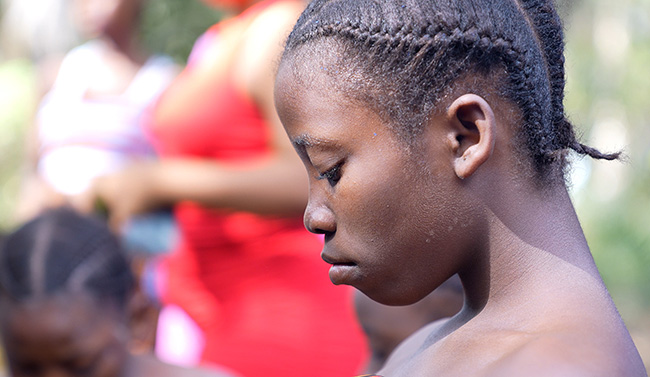I am actively working on a Ducumentary that addresses the critical issue of female genital mutilation (FGM) in Sierra Leone. This project aims to shed light on the practice of genital mutilation and its impact on the lives of women and girls in the country. Through extensive research, interviews, and storytelling, our goal is to raise awareness, initiate meaningful discussions, and foster positive societal changes. By exploring the cultural, social, and health aspects of FGM, we hope to challenge harmful traditions, promote gender equality, and advocate for the rights and well-being of women and girls affected by this harmful practice in Sierra Leone.

Female genital mutilation (FGM), also known as female circumcision, is a harmful traditional practice that involves the partial or total removal of external female genitalia or other injury to the female genital organs for non-medical reasons. Sierra Leone is one of the countries where FGM is prevalent, although efforts are being made to combat the practice.
In Sierra Leone, FGM has been deeply rooted in traditional beliefs and cultural norms for generations. According to data from the United Nations Children’s Fund (UNICEF), Sierra Leone has one of the highest prevalence rates of FGM in the world. It is estimated that around 88% of women and girls between the ages of 9 and 49 have undergone some form of FGM.
The government of Sierra Leone recognizes the harmful effects of FGM and has taken steps to address the issue. In 2002, Sierra Leone passed the Child Rights Act, which prohibits FGM for girls under the age of 18. However, the enforcement of this law has been challenging, particularly in rural areas where traditional practices are deeply ingrained.
Various organizations, both local and international, are working together to combat FGM in Sierra Leone. They engage in advocacy, community awareness campaigns, and provide support for survivors of FGM. These efforts aim to change societal attitudes, promote education, and empower women and girls to reject the practice.

While progress has been made in raising awareness about the harmful effects of FGM and reducing its prevalence, there is still work to be done. Changing deeply entrenched cultural practices takes time and sustained efforts. Continued collaboration between government, civil society organizations, and communities is crucial to eliminate FGM and ensure the well-being and rights of girls and women in Sierra Leone.